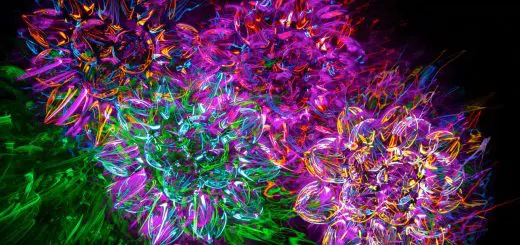The Evolution of Human Consciousness: An Overview

Looking for more amazing products? Check out our online store and explore our collection here! Happy shopping!
Before diving in, please note: This post is for informational purposes only. If you’d like to know more about how we approach topics, feel free to check out our friendly Disclaimer Page.
Hey there, amazing readers! 
We’re committed to delivering quality posts, and your support (even just sticking around despite the ads) means everything to us. So, bear with us, and thanks for helping us keep the good vibes rolling. Now, on to the fun stuff!
TRANSLATE BUTTON AT THE END OF THE ARTICLE
A Quick Overview
Human consciousness is a complex and fascinating topic that has intrigued scholars, scientists, and philosophers for centuries.
Understanding how consciousness has evolved over time can provide valuable insights into the nature of the human mind and its place in the world.
In this article, we will explore the evolution of human consciousness from early hominids to modern-day humans, examining the role of language, tools, culture, religion, philosophy, and science in shaping our understanding of consciousness.
Introduction to Human Consciousness
Human consciousness refers to our ability to be aware of ourselves and our surroundings, to experience thoughts, emotions, and sensations, and to have a sense of self-awareness.
It is what sets us apart from other animals and allows us to contemplate our place in the universe.
The study of consciousness encompasses a wide range of disciplines, including neuroscience, psychology, philosophy, and anthropology.
By examining the evolution of human consciousness, we can gain a deeper understanding of what it means to be human.
Early Hominids and Primitive Consciousness
The earliest hominids, such as Australopithecus and Homo habilis, had rudimentary forms of consciousness that were focused on survival instincts, basic emotions, and sensory perceptions.
These early hominids lacked the sophisticated cognitive abilities that modern humans possess, but they still exhibited signs of self-awareness and social behavior.
As hominids evolved over millions of years, their consciousness became more complex, paving the way for the emergence of modern Homo sapiens.
Development of Language and Self-Awareness
One of the key milestones in the evolution of human consciousness was the development of language.
Language allowed early humans to communicate with one another, share ideas, and form social bonds.
With the advent of language, humans gained the ability to reflect on their own thoughts and emotions, leading to a greater sense of self-awareness.
This newfound ability to introspect and communicate paved the way for the development of complex societies and culture.
Impact of Tools and Technology on Consciousness
The invention of tools and technology played a crucial role in shaping human consciousness.
The ability to create and use tools allowed early humans to manipulate their environment, solve problems, and adapt to new challenges.
As humans became more adept at using tools, their cognitive abilities expanded, leading to further advancements in technology, art, and science.
The use of tools not only changed the physical world but also transformed the way humans thought about themselves and their place in the world.
Social Structures and the Emergence of Culture
As early humans began to live in larger social groups, new forms of consciousness emerged that were centered around social interactions, cooperation, and shared beliefs.
The development of culture, including art, music, religion, and rituals, helped to solidify social bonds and create a sense of shared identity among individuals.
Culture became a way for humans to express their ideas, values, and emotions, shaping the way they perceived the world and themselves.
Symbolic Thought and Abstract Thinking
One of the defining features of human consciousness is our ability to engage in symbolic thought and abstract thinking.
Humans have the capacity to create and understand symbols, metaphors, and abstract concepts that go beyond our immediate sensory experiences.
This ability to think symbolically allows us to imagine the past and future, to dream, to create art and literature, and to engage in philosophical speculation about the nature of reality.
Symbolic thought is a hallmark of human consciousness that sets us apart from other animals.
The Role of Religion in Shaping Consciousness
Religion has played a significant role in shaping human consciousness throughout history.
The belief in gods, spirits, and supernatural forces has been a central aspect of human culture for millennia, providing people with a sense of meaning, purpose, and connection to the divine.
Religion has influenced the way humans think about morality, death, and the afterlife, shaping their beliefs, values, and behaviors.
The study of religion offers valuable insights into the nature of consciousness and the human experience.
Philosophical Contributions to Understanding Consciousness
Philosophers have long been interested in the nature of consciousness and have offered a variety of theories and perspectives on the subject.
Explore the Path to Spirituality and Enlightenment – Start Here.
From Plato and Aristotle to Descartes and Kant, philosophers have grappled with questions about the mind, the self, and the nature of reality.
Philosophical inquiries into consciousness have helped to deepen our understanding of the human experience and have sparked debates about free will, consciousness, and the nature of reality.
Modern Science and the Study of Consciousness
In recent years, advances in neuroscience, psychology, and cognitive science have shed new light on the nature of consciousness.
Scientists have used brain imaging techniques, cognitive experiments, and computational models to study how the brain generates conscious experiences.
The field of consciousness studies has emerged as a vibrant interdisciplinary field that seeks to unravel the mysteries of the mind and consciousness.
By integrating scientific research with philosophical and cultural insights, scholars are making significant strides in understanding the nature of human consciousness.
Cognitive Revolution and Brain Complexity
The cognitive revolution, which began around 70,000 years ago, marked a period of rapid evolution in human cognition and consciousness.
During this time, humans began to exhibit more complex forms of symbolic thought, language, and culture.
The expansion of the human brain, along with advancements in social organization and technology, led to a flowering of creativity, innovation, and cultural diversity.
The cognitive revolution marked a turning point in human history and laid the groundwork for the development of modern human consciousness.
Consciousness in the Age of Information
In the modern age of information, humans are constantly bombarded with a deluge of data, images, and messages that shape our perceptions and consciousness.
The rise of digital technology, social media, and artificial intelligence has transformed the way we communicate, learn, and interact with the world.
The internet has become a vast repository of knowledge, ideas, and opinions that influence our thoughts, beliefs, and behaviors.
As we navigate the complexities of the digital age, our consciousness is being shaped by new forms of media, communication, and technology.
Future Trends in Human Consciousness
As we look towards the future, it is clear that human consciousness will continue to evolve and adapt to new challenges and opportunities.
The rapid pace of technological innovation, globalization, and environmental change is reshaping the way we think, feel, and interact with the world.
In the coming years, we can expect to see advancements in artificial intelligence, virtual reality, biotechnology, and neuroscience that will further expand our understanding of consciousness.
By staying curious, open-minded, and engaged with the world around us, we can continue to explore the frontiers of human consciousness and unlock the secrets of the mind.
Conclusion
The evolution of human consciousness is a rich and complex tapestry that spans millions of years of human history.
From the earliest hominids to modern-day humans, our consciousness has been shaped by a wide range of factors, including language, tools, culture, religion, philosophy, and science.
By studying the evolution of human consciousness, we gain valuable insights into the nature of the human mind and its place in the world.
As we look towards the future, it is clear that human consciousness will continue to evolve and adapt to new challenges and opportunities, shaping the way we think, feel, and interact with the world.
By remaining curious, open-minded, and engaged with the world around us, we can continue to explore the mysteries of human consciousness and unlock the secrets of the mind.

The Enlightenment Journey is a remarkable collection of writings authored by a distinguished group of experts in the fields of spirituality, new age, and esoteric knowledge.
This anthology features a diverse assembly of well-experienced authors who bring their profound insights and credible perspectives to the forefront.
Each contributor possesses a wealth of knowledge and wisdom, making them authorities in their respective domains.
Together, they offer readers a transformative journey into the realms of spiritual growth, self-discovery, and esoteric enlightenment.
The Enlightenment Journey is a testament to the collective expertise of these luminaries, providing readers with a rich tapestry of ideas and information to illuminate their spiritual path.
Our Diverse Expertise
While our primary focus is on spirituality and esotericism, we are equally passionate about exploring a wide range of other topics and niches 

To ensure we provide the most accurate and valuable insights, we collaborate with trusted experts in their respective domains 
Our blog originally focused on spirituality and metaphysics, but we’ve since expanded to cover a wide range of niches. Don’t worry—we continue to publish a lot of articles on spirituality! Frequently visit our blog to explore our diverse content and stay tuned for more insightful reads.
Hey there, amazing reader! 
Check out our store here and take a peek at some of our featured products below! Thanks for being awesome!











